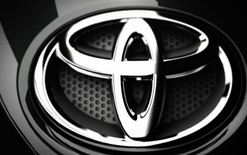Seeking strong road network

An industry organisation is lobbying for all Kiwis to have access to charging infrastructure and ensure that owners of all cars, including electric vehicle (EVs), pay their fair share to the National Land Transport Fund (NLTF).
The Motor Trade Association (MTA) is also calling on the next government to restore the NLTF’s founding principle, so it’s solely focused on roads.
“Recent weather events have accelerated the deterioration of many roads, and have emphasised the need for roads to be robust and built to withstand climate change,” it says.
“While new climate-friendly transport is to be encouraged, expenditure in other forms of transport must not be at the expense of a strong road network.”
Traditionally, road-user charges and fuel taxes helped fund New Zealand’s roading network, but the law was changed in 2020 to allow these taxes to pay for rail.
“While rail has an important role to play in the country’s transport network, we believe the principle that road users only pay for roading projects should be restored,” says the MTA in its call to action.
“The next government must ensure the statement on land transport directs Waka Kotahi to prioritise investment in road maintenance and repairs.”
Dumped cars
The MTA says a repairer’s duty of care with dumped vehicles is a long-standing grey area in the law.
While parts of current legislation deal with abandoned goods, such as councils dealing with cars left on public roads, there are no such processes for repairers left with dumped vehicles.
In some cases, when repair costs exceed the vehicle’s value, owners simply refuse to pick their cars up and cut contact with repairers. This means the latter can be left with a vehicle that’s been effectively dumped on them.
However, they cannot scrap or sell them for years for fear the owner might later try to reclaim ownership – all the while dealing with the expense and inconvenience of storing a deteriorating vehicle.
“This is a regular occurrence and inconvenience to business owners,” says the MTA, which is calling on the government to add provisions to existing legislation to establish a process for repairers to lawfully deal with abandoned goods.





